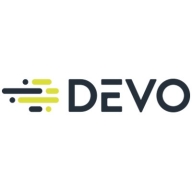

Devo and AWS Security Hub are prominent players in the security information and event management (SIEM) market. AWS Security Hub seems to have the upper hand because of its robust cloud-native features and scalability.
Features: Devo is valued for its efficient data integration, real-time event correlation, and adaptability to various data sources. AWS Security Hub offers extensive cloud-native features, automated compliance checks, and seamless integration with other AWS services.
Room for Improvement: Devo could improve its user experience, offer more intuitive dashboards, and enhance ease-of-use. AWS Security Hub users desire enhanced customizability, better multi-account management, and more flexibility in configuration.
Ease of Deployment and Customer Service: Devo is highlighted for a straightforward deployment process and commendable customer support. AWS Security Hub has an easy deployment within the AWS ecosystem, but support responsiveness can vary.
Pricing and ROI: Devo is seen as offering good value for money with its transparent pricing model. AWS Security Hub's pricing is higher but justified by its extensive feature set and integration capabilities.
| Product | Market Share (%) |
|---|---|
| AWS Security Hub | 3.9% |
| Wiz | 16.6% |
| Prisma Cloud by Palo Alto Networks | 9.6% |
| Other | 69.9% |
| Product | Market Share (%) |
|---|---|
| Devo | 0.8% |
| Wazuh | 9.4% |
| Splunk Enterprise Security | 7.1% |
| Other | 82.7% |

| Company Size | Count |
|---|---|
| Small Business | 10 |
| Midsize Enterprise | 5 |
| Large Enterprise | 12 |
| Company Size | Count |
|---|---|
| Small Business | 8 |
| Midsize Enterprise | 4 |
| Large Enterprise | 11 |
AWS Security Hub is a comprehensive security service that provides a centralized view of security alerts and compliance status across an AWS environment. It collects data from various AWS services, partner solutions, and AWS Marketplace products to provide a holistic view of security posture. With Security Hub, users can quickly identify and prioritize security issues, automate compliance checks, and streamline remediation efforts.
The service offers a range of features including continuous monitoring, threat intelligence integration, and customizable dashboards. It also provides automated insights and recommendations to help users improve their security posture. Security Hub integrates with other AWS services like Amazon GuardDuty, AWS Config, and AWS Macie to provide a unified security experience. Additionally, it supports integration with third-party security tools through its API, allowing users to leverage their existing security investments.
With its user-friendly interface and powerful capabilities, AWS Security Hub is a valuable tool for organizations looking to enhance their security and compliance posture in the cloud.
Devo is the only cloud-native logging and security analytics platform that releases the full potential of all your data to empower bold, confident action when it matters most. Only the Devo platform delivers the powerful combination of real-time visibility, high-performance analytics, scalability, multitenancy, and low TCO crucial for monitoring and securing business operations as enterprises accelerate their shift to the cloud.
We monitor all Cloud Security Posture Management (CSPM) reviews to prevent fraudulent reviews and keep review quality high. We do not post reviews by company employees or direct competitors. We validate each review for authenticity via cross-reference with LinkedIn, and personal follow-up with the reviewer when necessary.